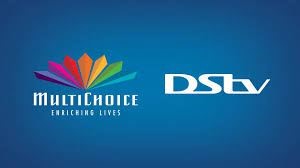By Oluwatobi Opusunju
DStv is reworking its market strategies as a big competitor TStv announced plan for a formal entry into Nigeria’s payTV market by October 1. TStv is coming to market with low entry and subscription costs as well as a pay as you watch option that may put DStv at the losing end of the competition. TStv also has a 20g wifi carrot for subscribers to push Nigeria’s consumers’ television experience further into the IoT (Internet of Things) realm.

TStv is exciting the market with its Pay-As-You-Go
But insiders say the South Africa payTV giant which has a monopoly grip on the Nigerian market is already tinkering with a 30% cut in subscription and a lower entry rate that may see its new rival contending for space.
One insider says DStv is studying the market and watching to see how the market reacts to TStv “juicy entry before it matches up with its own incredible offers.”
For DStv, it will be both a struggle to maintain its market share and a dominance it has enjoyed for decades with little or no challenge. The attempt by High Television (HiTV) to break that challenge some years back ended in fiasco as HiTV exited the market with huge debt amidst boardroom tussles.
Other cable TV or direct to home (DTH) service providers like Start Times only managed to take a small space in the market constituting no threat to DStv’s dominance.
The new TV provider which is already beating gongs and drums of its entry is exciting the market with its Pay-As-You-Go (PAYG) offerings, to give subscribers up to 200% savings on their monthly satellite TV budget.
“I cannot wait to subscribe to this new service. For me and many of the people on my street, it’s a decision borne more out of saving cost in this period of reception. It’s not even about the extras,” said one subscriber in Lagos. TStv is launching spontaneously in Lagos, Kano, Port Harcourt, Owerri and Abuja.
The new TV station with Hybrid Broadcast Broadband (HBB) technology combines satellite internet and TV services. It also allows consumers to pause subscriptions for a period of seven days every month among other mouth-watering features.
“TStv which will commercially launch across Nigeria soon, offers Nigerians complementary internet capacity, smart home, ability to pause subscriptions for a record seven days every month, Video calls and inbuilt 500GB hard drive inside our STBs for content storage, Video on Demand services as well as the regular uninterrupted clean world class contents available 24 hours every day.
“Our channels cut across various genres: news, music, general entertainment, documentary, movies, kids, religious, events, sports, health, fashion, and lifestyle channels,” says a statement on the TStv website.
“The buzz really is on how the new entrant will be able to match DStv’s competitive advantage on the diversification of its broadcast contents and its ability to position itself as the provider of wholesome family entertainment with interesting tag line that only recently change from ‘So much more’ to ‘Feel Every Moment. DStv has amazing content profile and it appears TStv is aiming to match that content advantage and at a very low price,” said one broadcast expert in Abuja, Jibola Adewuye.
Nigeria’s broadcast market has an intriguing history. In 1992, the deregulation of broadcasting in Nigeria broke the monopoly enjoyed by government in the provision of broadcast services and open the space for private entrepreneurs.
Before then, the federal, regional and state governments enjoyed the exclusive rights to broadcasting in Nigeria, beginning in 1932 with the Radio Broadcasting Service of the Empire Service of the British Broadcasting Corporation (BBC).
Since DStv debuted 22 years ago, it has set the tone for the market unchallenged. That may finally be altered if TStv manage stay firm up its presence.
































